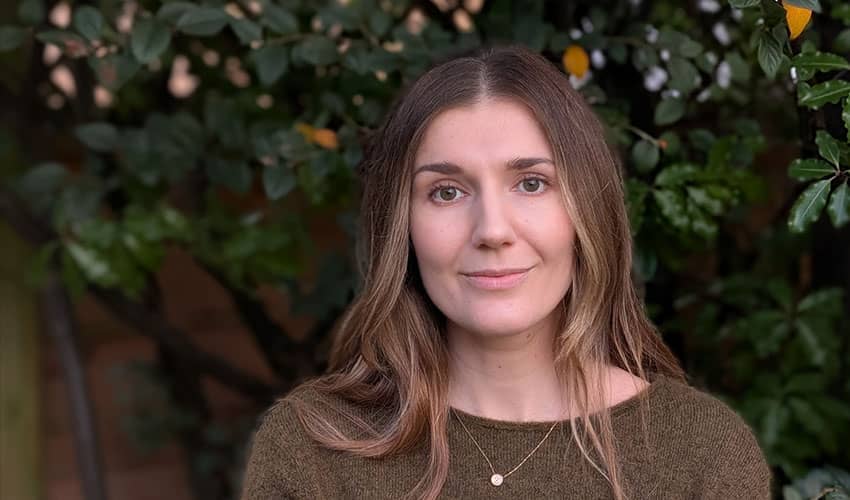Scientists devise biosensor to tackle cocoa disease and protect farmers' livelihoods
Scientists from UWE Bristol have devised a biosensor which tackles cocoa disease and aims to revitalize West Africa’s endangered cocoa industry.
Most chocolate consumers are naturally unaware of infections that can damage cocoa production; the cacao swollen shoot virus (CSSV) infection can lead to a reduction in the yield of cocoa pods, the death of cocoa trees and threaten the livelihoods of cocoa farmers.
Dr. Joel Allainguillaume, Associate Professor in Conservation Science, and Dr. Jackie Barnett, Senior Research Fellow in the Health and Applied Science Department, in collaboration with colleagues in the Institute of Bio-Sensing Technology, are developing an innovative handheld device which will identify whether or not the plant has the virus before any symptoms appear’’.
The timely detection of disease enables early intervention to prevent it from spreading further, as well as offering economic benefits.
Dr. Allainguillaume said: “This is mobile rapid early detection - if samples were taken back to the lab for analysis, this would be expensive and time-consuming. For farmers, early detection means regular production of cocoa continues and they won’t lose the revenue from their crop.
“With this device, there is a better likelihood of keeping it healthy, and therefore less pressure on the farmers’ finances, allowing them to do things like send their children to school. This will have a significant impact on the economic prospects of cocoa farmers in West Africa.”
The team are now looking into the feasibility of production of the device, and test screening in the field in areas where the virus has been identified.
The team are developing an optical biosensor that will achieve exceptional sensitivity in the presence of plant material.
Our aim is to be able to monitor the epidemiology of the disease, as well as test new planting material,” says Barnett. “As a result of developing highly sensitive and specific tests to detect CSSV in pre-symptomatic trees, we can make sure that new plants are not sent out that would grow into infected trees.
Allainguillaume, Barnett and their team are collaborating with Mars Wrigley on this project, as they work towards a shared goal of tackling the prevalence of CSSV and enhancing cocoa production in the region.
Related news

16 February 2026
UWE Bristol researchers awarded grant to explore impact of asset recovery on offenders
UWE Bristol academics have been awarded funding to explore of the impact of asset recovery on deterring offender behaviour and disrupting crime networks.

10 February 2026
Work by UWE Bristol lecturer features in Government’s National Cancer Plan
Work by a UWE Bristol academic has been included in the Government’s National Cancer Plan.

23 January 2026
On-demand minibus services beneficial in rural areas but face financial challenges, trials suggest
Trials of ‘demand responsive transport’ minibus services boosted connectivity for people in rural and suburban areas, according to a new report produced by UWE Bristol researchers.

18 December 2025
UWE Bristol professor appointed National Institute for Health and Care Excellence CEO
Jonathan Benger CBE, Professor of Emergency Care at UWE Bristol, has been appointed as the new chief executive officer of the National Institute for Health and Care Excellence (NICE).

17 December 2025
Findings revealed from first UK study into experiences of mothers who are survivors of rape pregnancy
UWE Bristol academics have revealed the findings of the first UK-based study of the experiences of mothers who are survivors of rape pregnancy.

11 December 2025
Social media influencer work is far more demanding than it looks, research finds
A study exploring the mental health impacts of social media influencer work has revealed that life online is far more demanding than it appears.

25 November 2025
UWE Bristol experts join film Q&A exploring music and melodrama
Academics will take part in the Cary Comes Home Festival, with a post-screening Q&A exploring music, melodrama and emotional storytelling in classic cinema.

17 November 2025
Urgent reform needed to support ambulance-delivered end of life care, study finds
More than three quarters (78 per cent) of paramedics sometimes fear doing the wrong thing when caring for people in the last year of life, new research has found.

13 November 2025
Bristol’s screen industry experiences “boom-and-bust cycle” after post-pandemic recovery, new research from UWE Bristol finds
New research from UWE Bristol provides detailed insight into Bristol's screen sector.

13 November 2025
New AI research to revolutionise animal welfare
A UWE Bristol research project will combine behavioural science and AI to create technology that understands not only what animals do, but how they feel.

10 November 2025
Lessons from Low Traffic Neighbourhoods will drive better public engagement, study finds
Lessons from Low Traffic Neighbourhoods have informed a new toolkit to improve engagement with the public on challenging local street issues.

06 November 2025
First-of-its-kind study aims to help more people spend their final days at home
A new study will explore how architectural design could support end-of-life care in domestic settings.






